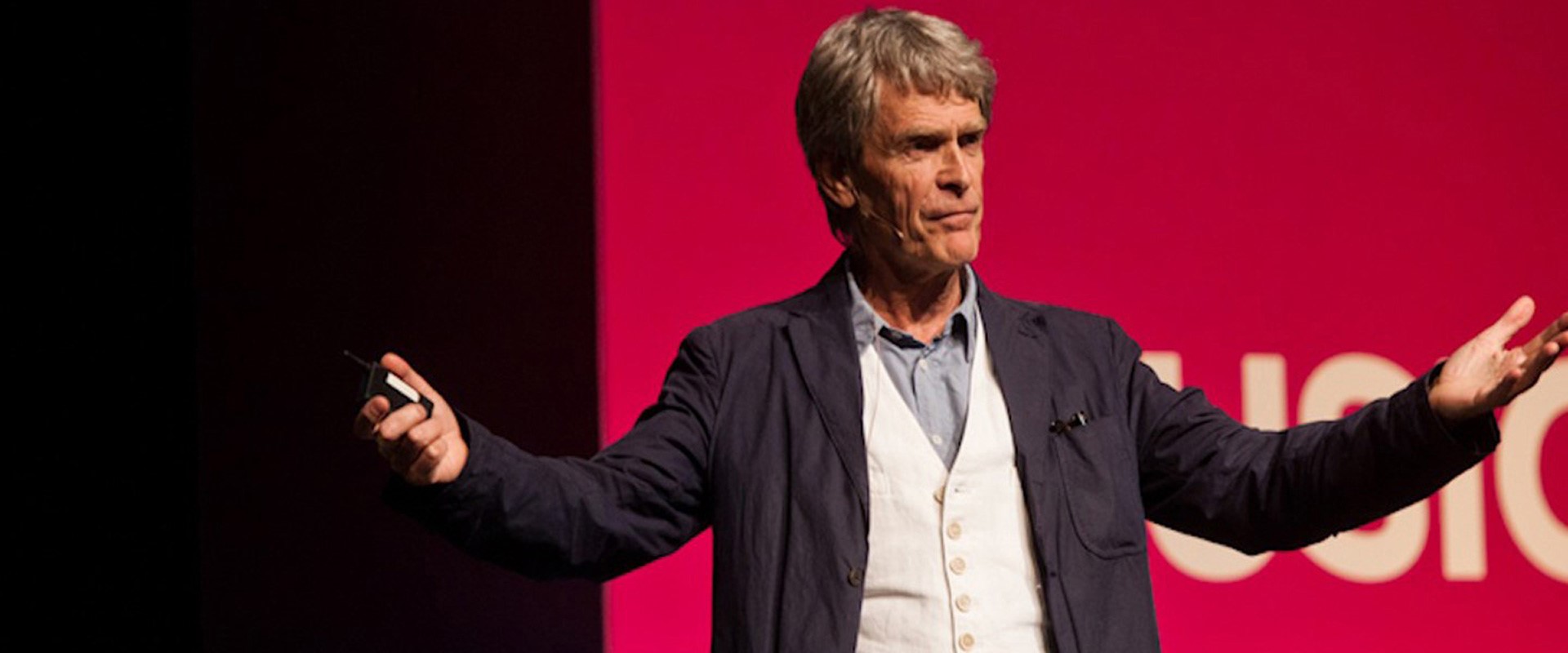The last time I went to The Festival of Marketing, to be honest I can’t remember if that was three or four years ago, one of the best speakers was Sir John Hegarty of leading ad agency Bartle Bogle Hegarty. John is a legend in the world of advertising being the creative brain behind some of best and most successful campaigns of all time including the Levi’s launderette advert in the ‘80s, the Boddington’s cream of Manchester series that launched Melanie Syke’s career and Audi’s ‘Vorsprung durch Technik’.
Being a legendary ad man doesn’t necessarily make someone a good commentator or public speaker of course, but for me John was one of the standouts from any FoM, no small achievement when that includes names like Steve Wozniak, Monica Lewinsky, Chris Hadfield and even Sir Alan Sugar (although he was easily the worst). What really made John stand out was his clarity of thought and expression. He has that rare ability to see straight through to the nub of the matter and explain himself really succinctly avoiding all the usual industry jargon, catch phrases and mannerisms. I lost count of how many sentences started with ‘So’ followed by words like omnichannel, integrated and insights.
In fact I was so impressed by what John had to say, and the way he said it, I went straight out and bought his little yellow book ‘Hegarty on creativity - there are no rules' which is a work of simple genius and is always near my desk as I dip into it frequently.
I believe then that John is one of those people you should listen to when they speak, so I was naturally drawn to an interview with him covered in this weekend’s press in which he said Google and Facebook should be broken up because they’re damaging the economy, business and society: ‘They’re sucking money out of the economy, not paying tax on it, and destroying what they’ve left behind,’ he told The Mail on Sunday. His strongly held views are that these companies should be regulated more strictly because they have ‘turned into monopolies’ and are not putting enough back into the economy.
Being an adman means he has a specific interest of course and he doesn't dispute that the rise of the internet has changed the way the ad industry works, but Google and Facebook have become so powerful they account for as much as 90 per cent of all new digital advertising spending in the UK.
“All corporations will want to monopolise. It’s in their nature. They’ll grow as fast and as big as they can, exclude competition, dominate the market, keep it where it is.’
He believes there will be a break-up, with the possibility of Facebook being forced to sell Instagram one of the first steps. Such action is necessary as even the massive the fines that are now being imposed have little impact on their behaviours. In fact just last week, Google was fined €1.5 billion by the European Commission for stifling competition in online advertising, but Sir John pointed out the futility of fines of even that size in his typical forthright manner: ‘Google are making nearly $9 billion [profit] a quarter so when you fine them €1.5 billion, it’s like taking somebody out for lunch.’
His criticism follows the release of a damning report into digital competition for the Government by Jason Furman, a former adviser to Barack Obama. In the report, Furman calls on the UK to ‘lead a global crackdown on the tech giants’ dominance and accused the firms of ‘bullying tactics’. He said the Competition and Markets Authority should be given powers to block takeovers of smaller rivals. He said the US tech giants had swallowed up 400 smaller firms over the past decade, highlighting Facebook’s takeovers of Instagram and WhatsApp, as well as Microsoft’s deal to buy LinkedIn.
Hegarty believes that the economy has stagnated over the past 15 years and he points the finger at tech companies, partly, for taking far too large a share of advertising spend and not giving enough of the money to the companies which create ads and display them.
'They've been allowed to not just disrupt, but disrupt irresponsibly. They don't pay taxes and things like that. And they're not putting back into the economy. They're sucking all this money out and it's not going back into the economy,' he says in The Mail on Sunday article by Jamie Nimmo. He used a newspaper analogy to explain: 'If I put more money into newspaper advertising, the newspaper can have more features, employ more journalists, it can have more advertisers in. It's a virtuous circle you're creating. I'm not sure that the tech companies as of yet are creating a virtuous circle.'
It’s a fair point - we’ve all seen the decline of journalism as a result of the internet, the impact on the advertising industry as John points out but we’re also witnessing the same on the high street where traditional retailers pay fortunes in rent, rates and tax whereas Amazon, the multi-billion pound US owned monolith, pays just a couple of million in tax in the UK as they’re registered off-shore. There’s a strange dichotomy seeing such an unfair battle with one lightweight fighter seemingly having one arm tied behind its back, both legs tied together using a wooden sword up against a giant with an Uzi.
Having given Sir John Hegarty and his thinking such a positive build up, I’m sure it won’t come as a surprised if I say that I say that I think he’s absolutely right. Being a technologist by nature I'm completely in awe of disruptors and disruptive thinking, but there's a difference between disrupting markets and destroying them. As John points out, disruption has to be responsible and when that leads to monopolies it creates a very dangerous situation, one that has always necessitated regulation. Government can’t stand on the sidelines while these American tech titans take so much out of our economy and put so little back.

